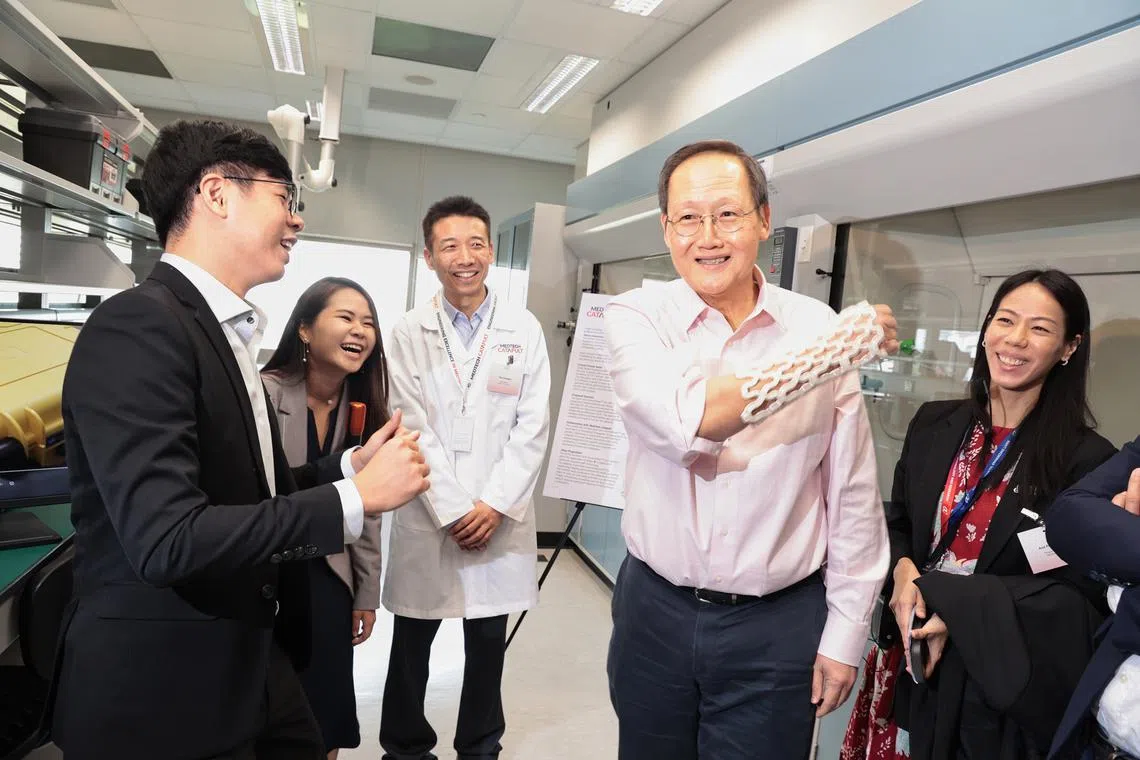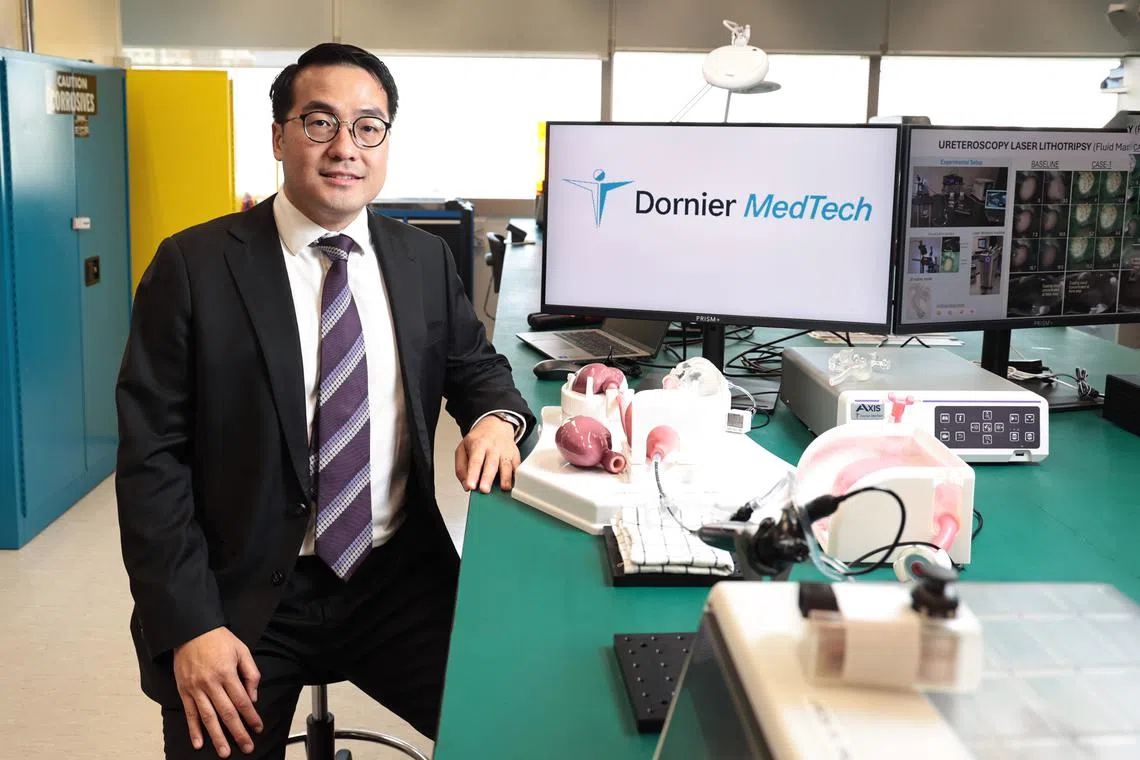New initiative connects innovators with manufacturers to boost Singapore’s medtech sector
Sign up now: Get ST's newsletters delivered to your inbox

Second Minister for Trade and Industry Tan See Leng trying out a 4D-printed remouldable cast during a tour at the official launch of MedTech Catapult at Biopolis on Feb 12.
ST PHOTO: HESTER TAN
SINGAPORE - To help boost Singapore’s medical technology sector, a newly launched initiative will connect medtech companies with local partners to innovate and scale up production.
MedTech Catapult, a $38 million national initiative hosted by A*Star, aims to speed up the development and commercialisation of life science instruments and medical devices.
Its goal is to connect product owners with contract manufacturers, identify high-value project ideas and translate these ideas into commercial products.
MedTech Catapult officially launched at Biopolis on Feb 12, but has been operating since April 2024.
In MedTech Catapult’s first year, it has supported projects such as a 4D-printed remouldable short arm cast for wrist fractures by Castomize, a spin-off from the Singapore University of Technology and Design that develops remouldable casts.
4D-printing combines 3D-printing technology with smart materials that can change shapes or properties over time in response to external stimuli, like heat, light and moisture.
MedTech Catapult also supported a kidney stone treatment where patient outcomes are enhanced via an intelligent system that was developed by Dornier MedTech, in partnership with A*Star and Ng Teng Fong General Hospital.
The system supports laser lithotripsy, a procedure that uses a laser to break up stones in the urinary tract.
In Asia alone, the medtech sector is projected to grow from US$164 billion (S$222.4 billion) today to over US$225 billion in 2030, according to the Economic Development Board’s (EDB) estimates.
It is an important growth sector for Singapore, said Second Minister for Trade and Industry Tan See Leng, speaking at the launch of MedTech Catapult.
“Today, we have a base of more than 400 medtech companies, which collectively employ over 17,000 people. The global top 30 multinational medtech companies, such as Medtronic and Becton Dickinson, have all set up operations here,” he said.
While local manufacturers have done well in carving out a competitive niche for themselves, they have to update their product offerings to stay relevant and competitive, Dr Tan added.
This is the gap that MedTech Catapult will help to plug, by enabling manufacturers to be part of the research and development of new medical devices and life science tools.
The surge in artificial intelligence innovations globally will continue to drive advancements in various medtech domains, from business operations, diagnostics to treatment processes, Dr Tan added.
The MedTech Catapult initiative also sets out to provide the design and development expertise and networks that companies need to successfully launch their products into the market.
This is important for Mr Wong Yau Chung, chief executive of Advanced MedTech, of which Dornier MedTech is a subsidiary. He said the support most needed for product owners and innovators is the back-and-forth cooperation between all the parties on a project, which include doctors, research institutes and those in the industry.

Advanced MedTech CEO Wong Yau Chung said the support most needed for product owners and innovators is the back-and-forth cooperation between all the parties on a project.
ST PHOTO: HESTER TAN
Together with several agencies, including the Ministry of Trade and Industry, A*Star, EnterpriseSG and EDB, MedTech Catapult has developed a directory of around 30 local partners that medtech companies can work with to innovate and scale up production.
The directory highlights the different capabilities of local manufacturers, so medtech firms can see which manufacturer best suits their different projects and needs.
It will be continually updated to connect medtech innovators to the right manufacturing partners.
Rosalind is a business journalist who has been with The Straits Times since 2021. She covers e-commerce and stories on retail businesses.


